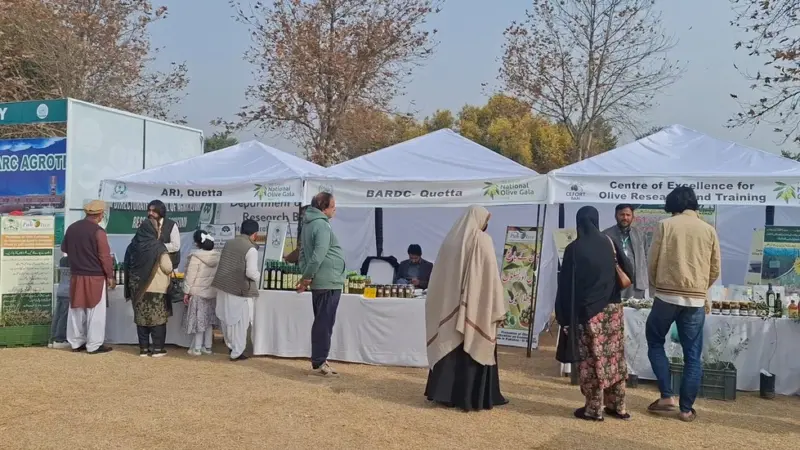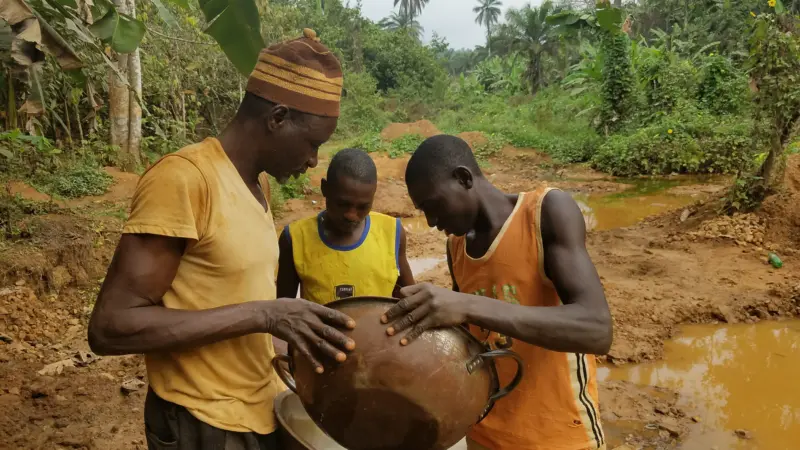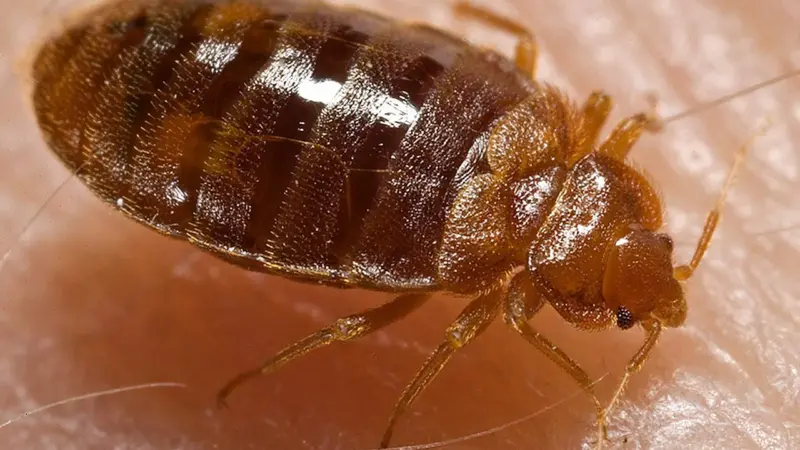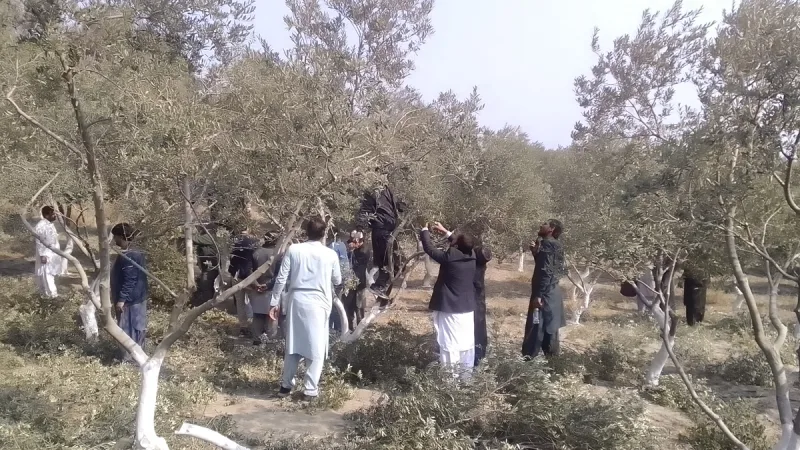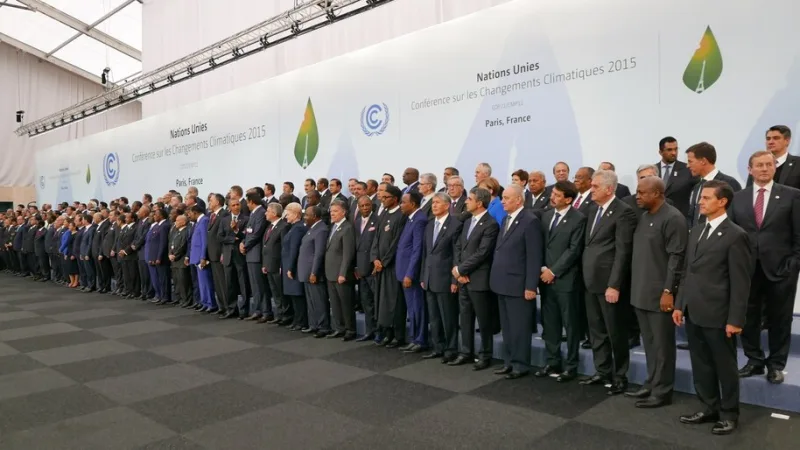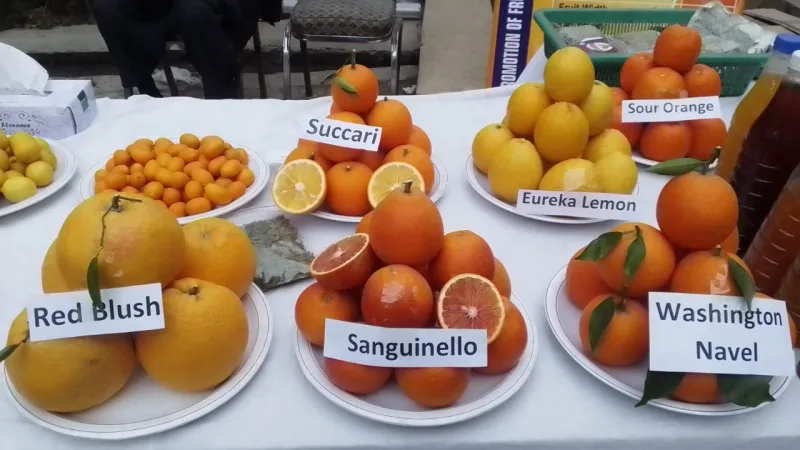Pakistan’s Olive Oil Breakthrough: From Barren Land to Global Recognition
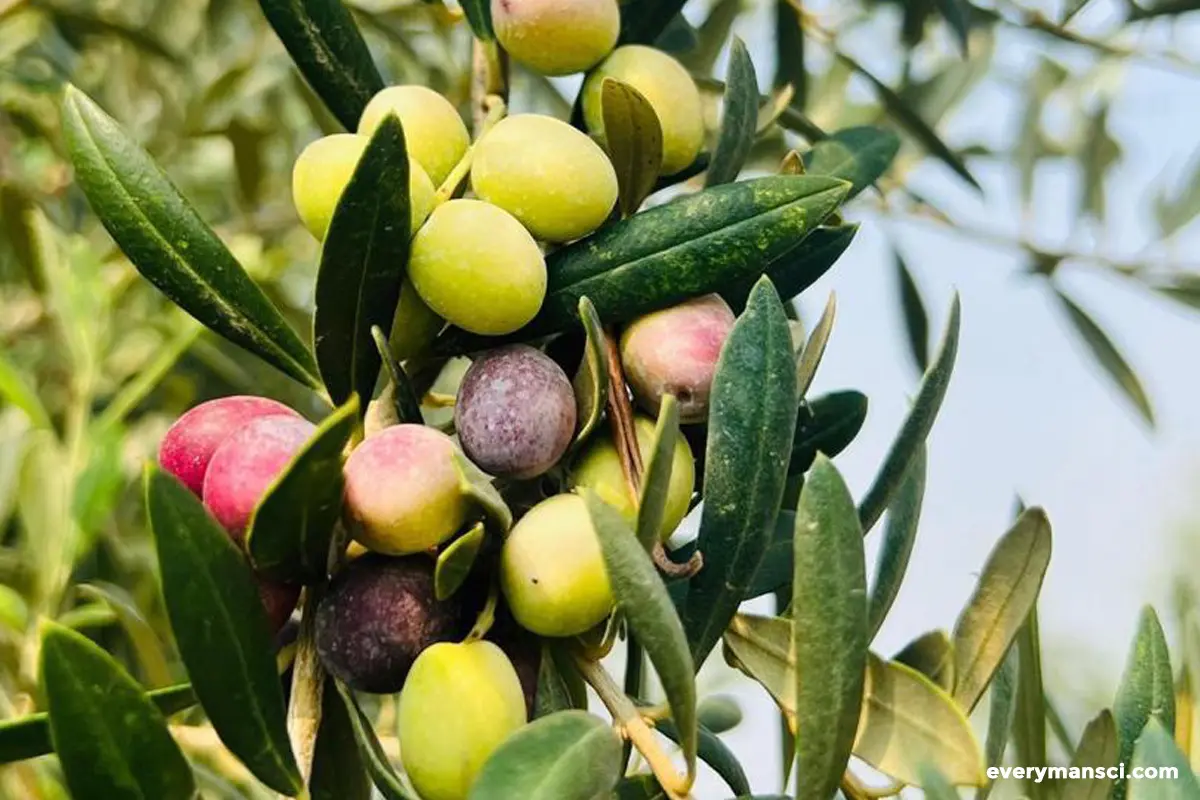
Tucked away in the rugged hills of Balochistan and stretching across the arid plains of Punjab and KP, a quiet agricultural revolution has been taking root, one that now has the world’s attention. In a country long defined by food insecurity and crop volatility, olive oil has emerged as a symbol of resilience, reinvention, and rising global potential.
What began as a vision to utilize fallow land for high-value crops has now evolved into a nationally backed movement, supported by progressive policies, international cooperation, and the hard work of thousands of farmers. With Pakistan earning its first-ever medal at the world’s leading olive oil competition, the journey from hill to harvest is no longer just local — it’s global.
This article explores the remarkable rise of Pakistan’s olive oil sector — from Italy’s decades-long investment and the formation of a national policy, to the historic global win by Loralai Olives. More than a success story, it’s a blueprint for what is possible when strategy, science, and soil come together with purpose.
A National Moment
In a landmark moment for Pakistan’s agriculture, a locally produced olive oil recently earned international recognition — marking the country’s first-ever win at the NYIOOC World Olive Oil Competition, the world’s most prestigious olive oil quality contest. This milestone was achieved by Loralai Olives, a pioneering brand from Balochistan, which secured a Silver Award for its Arbequina monovarietal — a delicate oil crafted under optimal climatic conditions on a 40-hectare farm in the Loralai district.
The award was not only a breakthrough for the brand but also a defining milestone for the entire sector. It validated a decade of policy vision, research, and grassroots work — from government-backed subsidies and farmer training programs to state-of-the-art processing units and traceable, sustainable farming methods.
The win also underscored the efficacy of Pakistan’s “fruit-to-mill” model, in which olives are harvested at peak ripeness and processed within hours to ensure top-tier quality. With oils stored in temperature-controlled tanks and packaged in UV-protective bottles, Pakistan’s olive products are now aligned with international quality and safety standards — including ISO 9001, ISO 22000, HACCP, and Halal certifications.
Importantly, this recognition has turned attention to Balochistan’s high-potential terrain, where dry climate, high sunlight exposure, and favorable elevation are proving ideal for world-class olive farming. The ripple effect is already visible, with more local farmers shifting towards olive cultivation, driven by growing demand, government support for processing infrastructure, and expanding export channels to the U.S., Middle East, and Europe.
While this global win marks a major milestone, it is seen as only the beginning. Industry stakeholders emphasize the need to further scale production, adopt precision agriculture techniques, and enhance branding to strengthen Pakistan’s footprint in the international olive market.
What was once viewed as an experimental crop in arid hillsides is now producing award-winning oil — and more critically, transforming rural livelihoods. Pakistan’s olive sector is emerging not only as a niche market success but as a national model for sustainable, high-value agriculture.
Italy’s Quiet Backbone: Decades of Development, Drop by Drop
At the heart of Pakistan’s olive transformation lies a deep and enduring partnership with the Government of Italy. Through its development cooperation agency and the technical expertise of CIHEAM Bari, Italy has not only supported Pakistan’s vision but has quietly helped build the very foundation of its olive oil sector. For over a decade — and rooted in cooperation stretching back nearly four decades — Italian support has remained steady, strategic, and visionary.
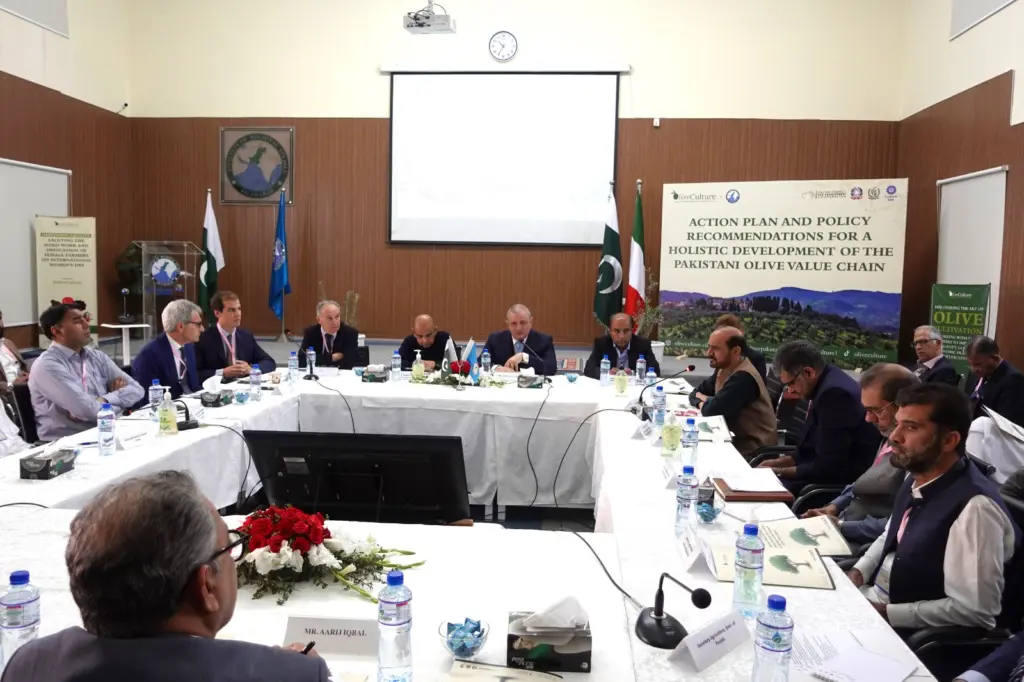
This partnership has gone far beyond symbolic gestures or aid packages. Italy’s role has encompassed the complete olive value chain — from the introduction of high-quality exotic germplasm and nursery materials to the establishment of modern nurseries, processing facilities, oil testing labs, and post-harvest infrastructure. These efforts have enabled a wide network of olive farms to take root across Punjab, KP, Balochistan, and even Gilgit-Baltistan.
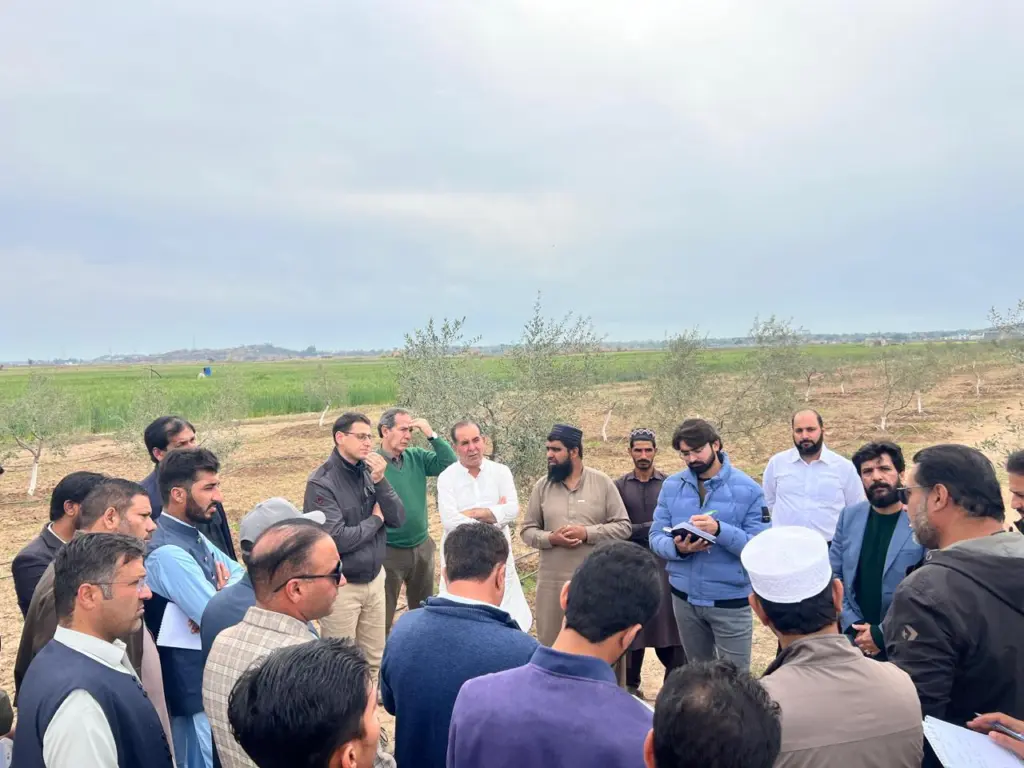
The real power of this partnership lies in knowledge transfer. Thousands of farmers and field workers have been trained in modern agricultural practices such as pruning, nursery management, pest control, harvesting, oil extraction, and international quality protocols. These include compliance with Good Agricultural Practices (GAP), Good Manufacturing Practices (GMP), and HACCP standards, ensuring both product safety and global competitiveness.
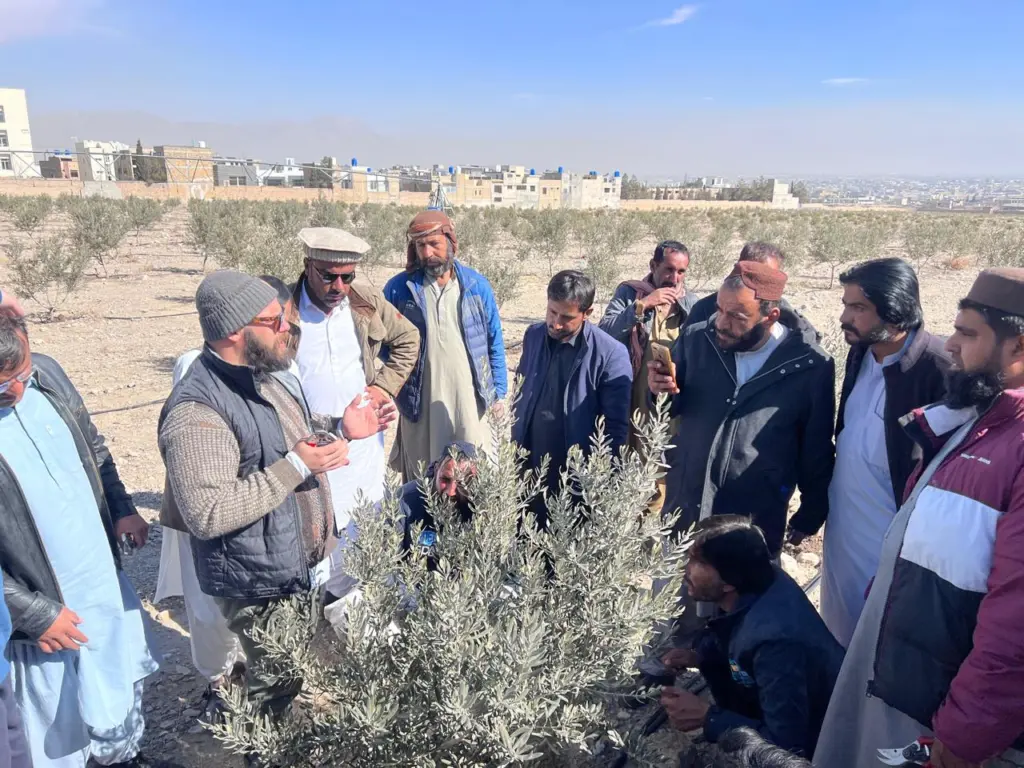
This hands-on, field-focused model has proven far more effective than typical top-down development work. In the words of one olive grower:
“We were trained. We believed. And today, our oil is winning medals.”
National Olive Value Chain Policy (2024–2030)
One of the most significant recent developments in Pakistan’s olive sector is the formulation of the National Olive Value Chain Policy (2024–2030) — a comprehensive strategy designed to guide the country’s transformation into a competitive player in the global olive oil industry. The policy has been drafted by CIHEAM Bari under the Italian-funded OliveCulture Project, in collaboration with the Government of Pakistan’s Ministry of National Food Security, and has been submitted to the federal cabinet for approval.
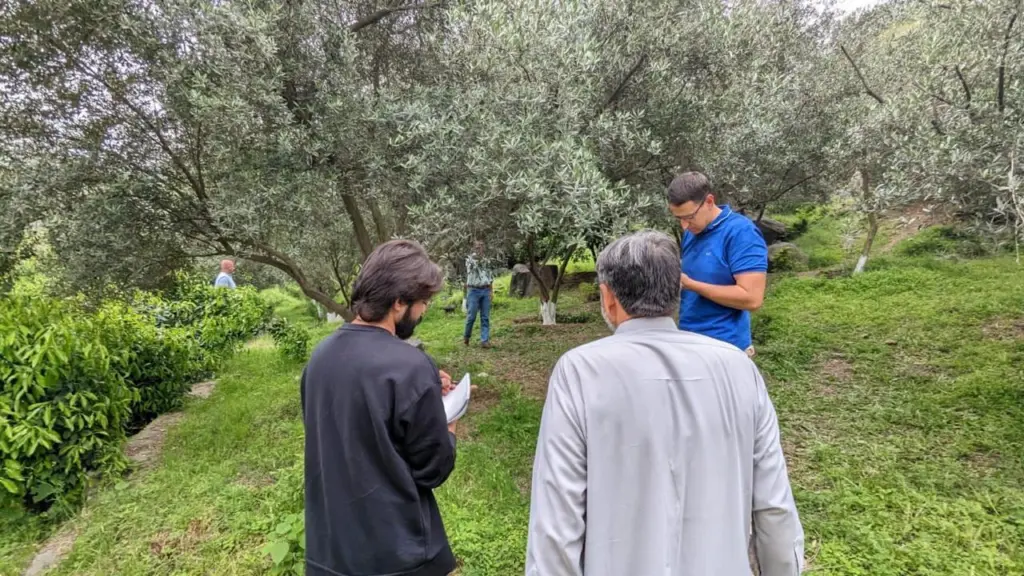
The policy recognizes Pakistan’s immense potential for olive cultivation, owing to its favorable climate, soil conditions, and growing domestic and international demand for olive oil. It lays out a robust implementation strategy and road map that addresses every aspect of the value chain — from plantation and harvesting to processing, branding, marketing, and export facilitation.
The primary goals of the policy include increasing national olive production, enhancing the quality of processing, and building human resource capacity through technical training and institutional support. It also aims to attract private sector investment in processing infrastructure and value-added products, and to facilitate stronger coordination among provincial governments, research institutions, and stakeholders across the olive sector.
Crucially, the policy emphasizes the development of certification and quality control mechanisms, ensuring that Pakistani olive oil meets international standards. By promoting domestic consumption alongside export readiness, it envisions a future where Pakistani olive oil is not just locally consumed, but also respected globally for its purity, sustainability, and traceability.
If implemented effectively, the National Olive Value Chain Policy is expected to unlock transformative opportunities for farmers, entrepreneurs, and emerging brands like Loralai Olives, while positioning Pakistan as a meaningful player in the international olive oil market.
Beyond the Medal
The recognition of Loralai Olives at the NYIOOC was more than a single award, it was a validation of Pakistan’s bold bet on olives as a crop of the future. But behind the medal lies something deeper: a decade of vision, partnerships, and grassroots resilience.
As the National Olive Value Chain Policy prepares to guide the sector through 2030, Pakistan is uniquely positioned to turn its olive ambitions into lasting economic value. With global demand rising, climate-resilient crops gaining ground, and quality infrastructure in place, the country’s olive oil industry is no longer a pilot — it’s a precedent.
Credits
This article is authored by Mohsin Rasheed, Co-Founder and Managing Editor of Everyman Science. Special thanks to Muhammad Arabi Awan, Scientific Officer, OliveCulture Project, CIHEAM Bari, for his generous support in providing detailed insights, information, and photographs used in this article.

